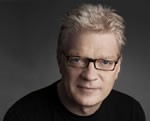
“Redefining horizons: Encouraging students’ passion to achieve” is the theme for this year’s International Society for Technology in Education (ISTE) conference—but in what looked like a scene that was more appropriate for a rock concert than an ed-tech show, it was educators’ passion that was evident in the overflowing crowd that appeared for the opening general session on June 24.
Though ISTE traditionally has been the largest educational technology conference in the U.S., with dwindling school budgets and the growth of online options, attendance has been down at national education trade shows in recent years.
But at ISTE’s 33rd annual conference, held in San Diego, the surging crowd and squished-in volunteers holding signs reading “Hey, it’s crowded” outside the opening general session suggested that educators are eager for new ideas in their classrooms.
And from the Spanish flamenco music beating from the ballroom to the bright red flames on the signage next to the ISTE stage, it seemed educators were ready to take student engagement by the horns.
“It’s investing in these professional learning opportunities now that means you’re investing in the future,” said Holly Jobe, ISTE president. “21st century education excellence is a race, and the only way we can win this race is by holding hands.”
The night’s main attraction was provided by Sir Ken Robinson, a world-renowned expert in creativity and innovation, and author of the book Out of Our Minds: Learning to be Creative (one of many), who argued that education is at a crossroads as one of the most hotly-debated issues in the world. In the U.S., specifically, the future of No Child Left Behind (NCLB) is one of the country’s most contested topics.
“Before I moved to the states [from the U.K.], I was told that Americans don’t understand irony. But that’s not true. And I found that out as soon as I heard about NCLB,” joked Robinson.
Robinson argued that school reform is never going to work through more impersonalization and standardization of education, because “humanity is based on the principle of diversity. For example, if you have two or more children, you know this to be true. You don’t say to one of them, ‘Wait, remind me who you are again? I can’t tell you apart.’”
One of the most important steps in making education more personalized and successful is to create a systemic shift that focuses on student engagement, Robinson said.
Watch Robinson discuss education:
[field name=iframe2]
“I urge educators and those in Congress to really think about: What does it take to truly engage students in their own learning? What is the role of technology in engagement? And, what are the implications for practice and policy?” he said.
In an effort to explain student engagement from a cognitive angle, Marc Prensky, the author of two works on digital natives, discussed a concept from his new book that he calls “digital wisdom.”
“There’s a balance between what we keep in our heads versus what we can delegate to the machines,” explained Prensky. “We should connect our brains to the technology, but only in a wise way. This is called digital wisdom.”
As an example of something humans can do better than machines and how this should be emphasized in classrooms, Prensky noted that teachers are better at empathy, and students are better at passion.
“The most important thing in education is to encourage student passion, and that’s what we’re trying to do, in part, with technology,” he said. “Technology can expand information and creative horizons, inciting passion, but then it’s up to the teacher to find, understand, and cultivate a student’s passion.”
According to Prensky, the keys to effective 21st-century education are to:
- Listen to kids’ passions.
- Respect each other (both students and teachers).
- Over-expect from both students and teachers.
- Empower all teachers to do what they know is right.
“Number four is important, because inherently people become teachers because they want to inspire and to cultivate passion and engagement, which gets beaten out of them over the years through standardization, et cetera. We need to help teachers get back to the jobs they’ve been trying to do,” he said.
Mayim Bialik— an actress and teacher who has a doctorate in neuroscience—was also part of the keynote panel, and she related how when she was starring in the show Blossom when she was a teenager, she wasn’t interested in science, math, and technology.
“I never looked at myself, especially as a woman, and thought: ‘I can be a neuroscientist or an engineer,’ mostly because no one had ever really talked to me about science. But then I had a tutor who showed me her passion in science and helped open me to a whole new world. It only takes one passionate teacher, ready to understand who you are and what motivates you,” she concluded.
- #4: 25 education trends for 2018 - December 26, 2018
- Video of the Week: Dealing with digital distraction in the classroom - February 23, 2018
- Secrets from the library lines: 5 ways schools can boost digital engagement - January 2, 2018

Comments are closed.